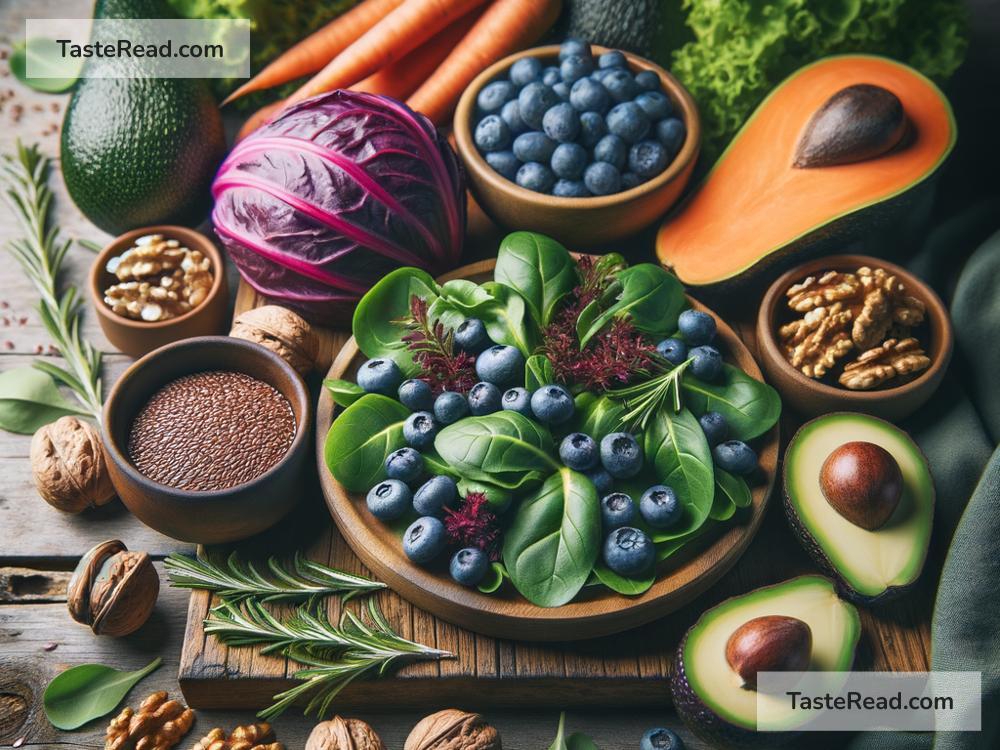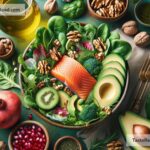Foods That Reduce the Risk of Endometriosis: A Simple Guide
Endometriosis is a condition where tissue similar to the lining of the uterus grows outside the uterus, causing pain, inflammation, and other symptoms. Around 1 in 10 women worldwide is affected by this condition, and it can have a big impact on their quality of life. While medical treatment is important, research shows that what you eat may also play a role in reducing the risk or managing symptoms of endometriosis. So, let’s dive into some foods that may help lower the risk of developing it or ease its symptoms.
What Is Endometriosis?
Before we talk about food, it’s helpful to understand endometriosis. The misplaced tissue reacts to hormonal changes during your menstrual cycle, just like the lining of your uterus. This causes inflammation, pain, and sometimes scar tissue. Symptoms can include painful periods, heavy bleeding, fatigue, and even difficulty getting pregnant. While there is no guaranteed way to prevent endometriosis, maintaining a healthy diet may support hormonal balance and reduce inflammation, both of which are key contributors to this condition.
Foods That May Reduce Risk or Ease Symptoms
Here are some types of foods that have proven to be beneficial in managing hormonal health and inflammation, which can help with endometriosis:
1. Leafy Greens and Colorful Vegetables
Vegetables like spinach, kale, broccoli, and cauliflower are packed with antioxidants and vitamins that reduce inflammation. Antioxidants help your body fight oxidative stress, which can worsen symptoms. Cruciferous vegetables (like broccoli and cauliflower) are especially helpful because they contain compounds that support the detoxification of excess estrogen, a hormone often linked to endometriosis.
Tip: Aim to eat 2-3 servings of green and colorful veggies daily for maximum benefits.
2. Fruits Rich in Antioxidants
Fruits like berries, oranges, and cherries are rich in antioxidants such as vitamin C and flavonoids. These reduce inflammation and help the body deal with the stress caused by endometriosis. Strawberries, blueberries, and raspberries are particularly high in anti-inflammatory compounds, which may provide relief.
Tip: Snack on fresh fruit or toss some into your smoothies and salads to get more antioxidants into your diet.
3. Omega-3 Fatty Acids from Fish
Fatty fish like salmon, mackerel, and sardines contain omega-3 fats that have anti-inflammatory properties. Omega-3s may help reduce period pain and inflammation associated with endometriosis. If you don’t like fish, walnuts, chia seeds, and flaxseeds are great plant-based alternatives.
Tip: Include fish in your meals at least 2-3 times a week, or add a tablespoon of ground flaxseeds to your oatmeal or yogurt.
4. Whole Grains
Whole grains like quinoa, oats, brown rice, and whole wheat bread are rich in fiber, which helps your body eliminate excess estrogen. Fiber also improves gut health, which may play a role in reducing symptoms of endometriosis. Replace refined grains, such as white bread and white rice, with whole grains to reap these benefits.
Tip: Start your day with steel-cut oats or swap white pasta for whole-grain pasta.
5. Nuts and Seeds
Almonds, walnuts, sunflower seeds, and pumpkin seeds are great sources of healthy fats, vitamins, and minerals. They also contain anti-inflammatory properties and are easy to include in your snacks or meals.
Tip: Keep small packets of mixed nuts or seeds on hand for snacking throughout the day.
6. Legumes and Beans
Beans, lentils, and chickpeas are excellent plant-based proteins packed with fiber and nutrients. They help balance hormones and reduce inflammation. They’re also filling, making them a good option for maintaining a healthy weight — an important factor in managing endometriosis.
Tip: Incorporate chickpeas into salads or soups, or use black beans to make tacos or burritos.
7. Herbs and Spices
Certain herbs and spices like turmeric, ginger, and cinnamon have proven anti-inflammatory properties. Turmeric, in particular, contains curcumin, which may reduce the pain and swelling caused by endometriosis. Ginger can help soothe your digestive system and reduce bloating, which is common in women with this condition.
Tip: Add turmeric powder to soups or sprinkle cinnamon on your oatmeal for a delicious anti-inflammatory boost.
Foods to Avoid
Just as certain foods can help, others may worsen symptoms of endometriosis. Eating too much of the following foods may increase inflammation or disrupt hormone balance:
- Processed foods: Chips, candy, and fast food lack nutrients and contain inflammatory ingredients.
- Red meat: High consumption is linked to higher rates of endometriosis.
- Sugar: Excess sugar can increase inflammation and hormonal issues.
- Alcohol and caffeine: Can disrupt hormones and make symptoms worse.
Final Thoughts
While food alone may not prevent or cure endometriosis, eating a healthy, balanced diet can help reduce inflammation and support hormonal balance. Focusing on vegetables, fruits, whole grains, fish, nuts, seeds, and anti-inflammatory spices may ease symptoms and improve overall health. At the same time, avoiding processed foods, red meat, sugar, and alcohol can help keep inflammation at bay.
If you suspect you have endometriosis or are struggling with symptoms, consult a healthcare provider or dietitian. Pairing the right diet with medical care can make a big difference in managing this condition.
You have the power to take small steps toward better health each day—and your plate is a great place to start! Try incorporating these foods into your meals and see how it helps your body feel better and more balanced.


